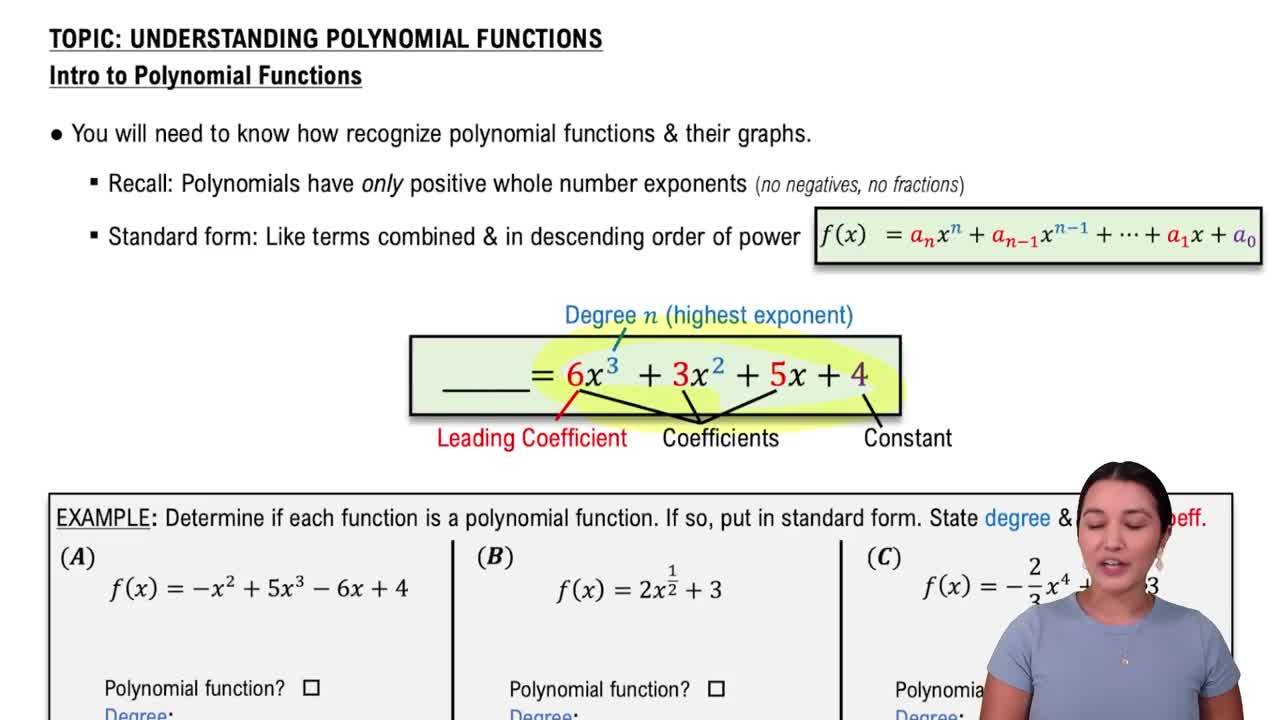Here are the essential concepts you must grasp in order to answer the question correctly.
Complex Zeros
Complex zeros are the solutions to a polynomial equation that may include real and imaginary numbers. A complex zero can be expressed in the form a + bi, where a and b are real numbers, and i is the imaginary unit. Understanding complex zeros is essential for analyzing polynomial functions, especially when the degree of the polynomial is higher than two, as they may not always yield real solutions.
Recommended video:
Polynomial Functions
A polynomial function is a mathematical expression involving a sum of powers in one or more variables multiplied by coefficients. The general form of a polynomial in one variable x is given by f(x) = a_nx^n + a_(n-1)x^(n-1) + ... + a_1x + a_0, where n is a non-negative integer and a_n is not zero. Understanding the structure of polynomial functions is crucial for finding their zeros and analyzing their behavior.
Recommended video:
Introduction to Polynomial Functions
Factoring Polynomials
Factoring polynomials involves expressing the polynomial as a product of simpler polynomials or linear factors. This process is vital for finding the zeros of the polynomial, as the zeros correspond to the values of x that make each factor equal to zero. Techniques such as synthetic division, the Rational Root Theorem, and grouping can be employed to factor polynomials effectively.
Recommended video:
Introduction to Factoring Polynomials




